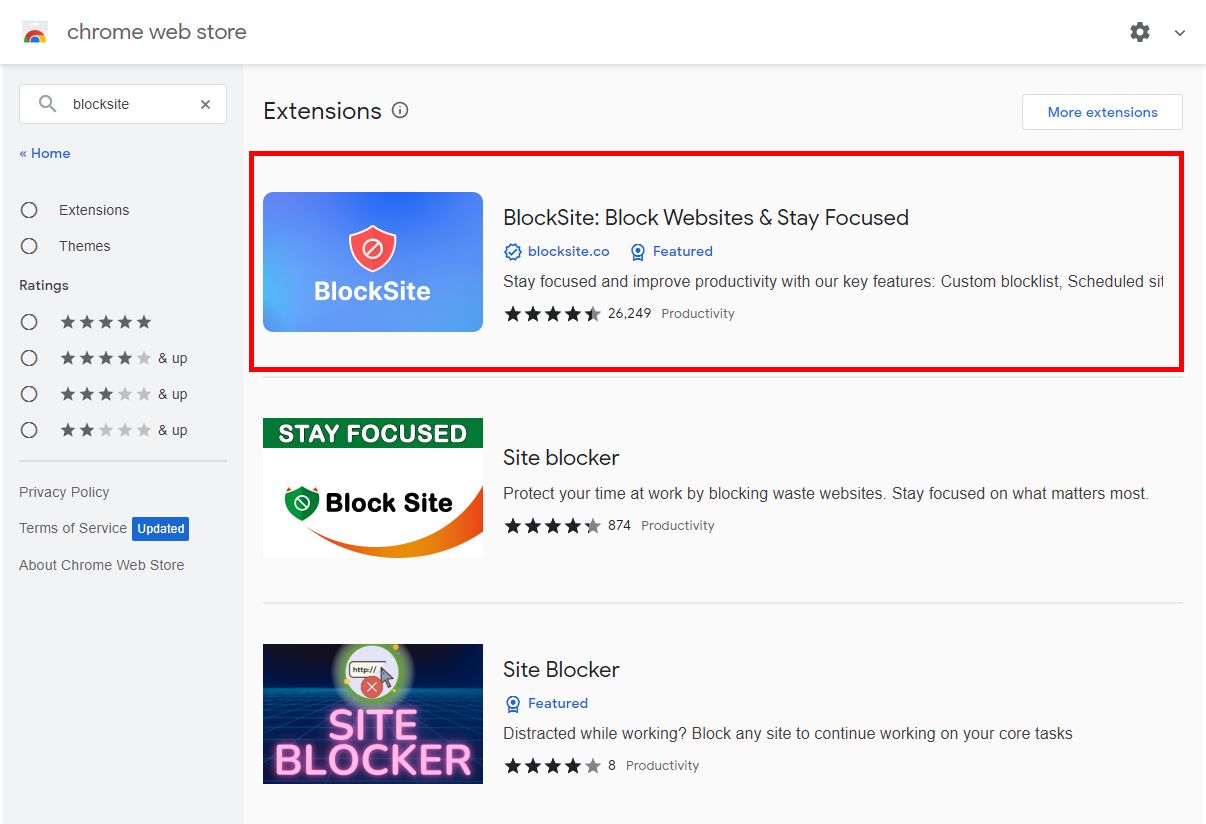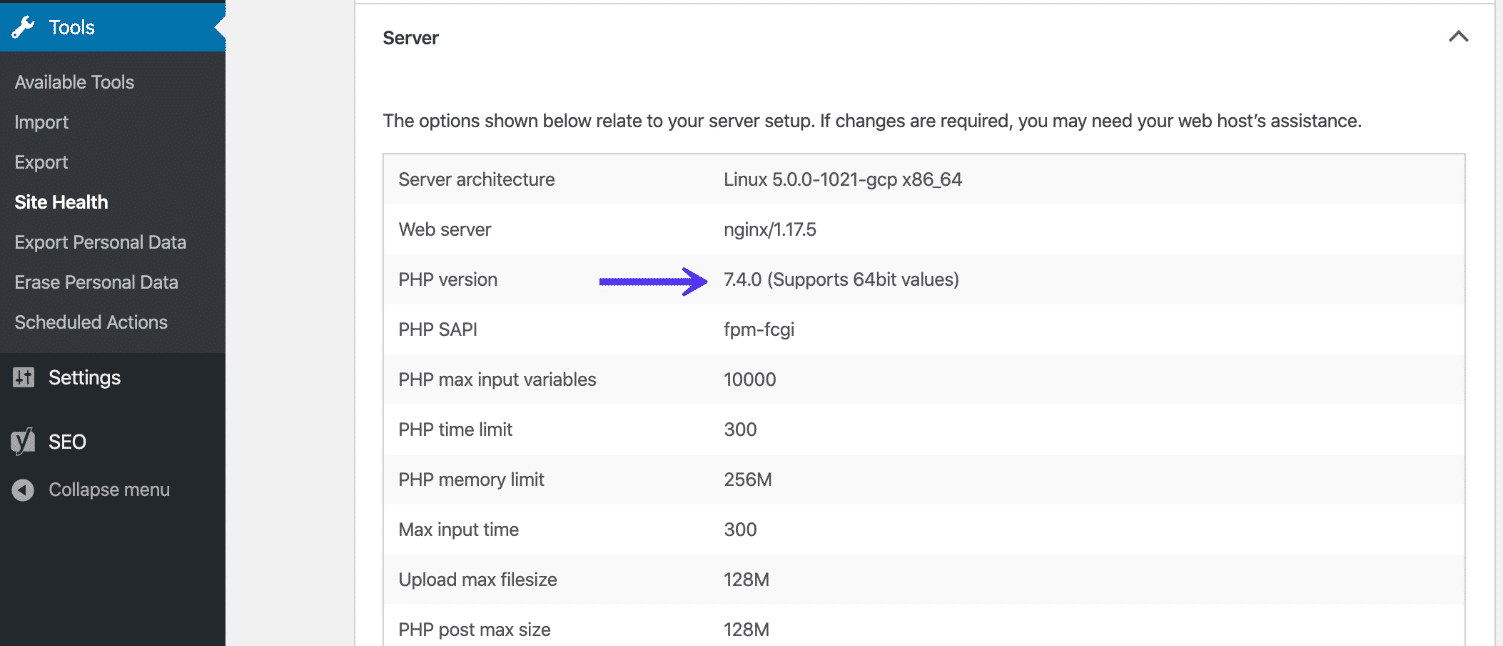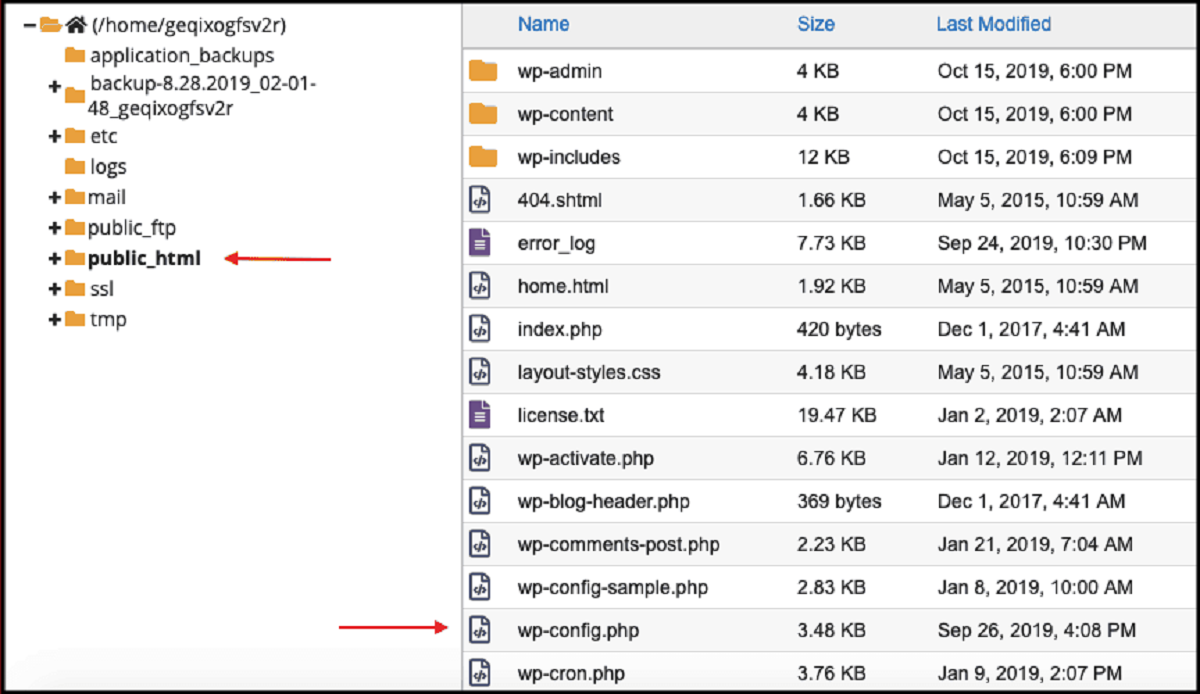Introduction
When it comes to establishing a strong online presence, choosing the right web hosting site is crucial. Your website’s speed, reliability, and overall performance depend heavily on the hosting provider you select. With countless options available, it can be overwhelming to determine which is the best web hosting site for your needs.
Whether you’re launching a personal blog, a small business site, or a large e-commerce platform, several factors should be considered to make an informed decision. From pricing and storage limits to customer support and security features, each aspect plays a significant role in the functionality and success of your website.
In this article, we will explore the key factors you should consider when choosing the best web hosting site. By understanding these factors, you’ll be equipped to make a well-informed decision that aligns with your specific requirements.
While the plethora of options might seem daunting at first, narrowing down your choices becomes easier when you evaluate the following aspects:
Factors to Consider When Choosing a Web Hosting Site
Choosing the right web hosting site is a critical decision that can impact the success of your online venture. To ensure you make an informed choice, consider the following factors:
- Price and Plans: Look for a web hosting site that offers affordable plans suitable for your budget and needs. Consider the features and resources included in each plan to determine their value.
- Hosting Server Reliability and Uptime: A reliable hosting server ensures that your website remains accessible to visitors at all times. Seek a provider with a strong track record of high uptime percentages and minimal server downtime.
- Storage and Bandwidth Limits: Evaluate the storage space and bandwidth provided by the hosting site. Ensure that they align with your website’s requirements and allow for future growth.
- Customer Support: Opt for a web hosting site with reliable and responsive customer support. 24/7 technical support via various channels, such as live chat, email, and phone, can be invaluable in resolving any issues that may arise.
- User-Friendly Interface and Control Panel: A user-friendly interface and control panel make it easier to manage your website’s settings, files, and email accounts. Look for intuitive and well-designed control panels like cPanel or Plesk.
- Website Builder Tools: If you lack web development skills, consider a hosting site that provides easy-to-use website builder tools. These tools allow you to create a professional-looking website without any coding knowledge.
- Security Features: Ensure that the web hosting site offers robust security measures, including SSL certificates, malware scanning, firewall protection, and regular backups. Your website’s security is crucial for safeguarding your data and your visitors’ information.
- Scalability and Flexibility: As your website grows, it’s important to have the flexibility to upgrade your hosting plan or customize resources based on your needs. Look for a hosting site that offers scalable options.
- Additional Services and Features: Consider any additional services or features offered by the web hosting site, such as domain name registration, email hosting, e-commerce capabilities, content delivery network (CDN) integration, and website analytics.
- Customer Reviews and Reputation: Research customer reviews and testimonials to gauge the hosting site’s reputation. Pay attention to feedback regarding uptime, customer support, and overall satisfaction.
By carefully considering these factors and weighing them against your specific requirements, you can confidently choose the best web hosting site for your needs.
Price and Plans
Price is often a crucial consideration when selecting a web hosting site. It’s important to find a hosting provider that offers affordable plans while still meeting your website’s needs. Here are some key factors to consider when evaluating the price and plans:
Plan Features: Compare the features included in each hosting plan. Consider factors such as disk space, bandwidth, number of domains allowed, email accounts, and databases. Ensure that the plan offers sufficient resources to support your website’s requirements.
Introductory vs. Renewal Price: Many hosting providers offer discounted prices for the first term, known as the introductory price, and higher renewal prices. Be sure to check the renewal price to avoid any surprises when it’s time to renew your plan.
Money-Back Guarantee: Look for a hosting site that offers a money-back guarantee. This allows you to try their services risk-free and get a refund within a specified period if you’re not satisfied. Typically, hosting providers offer a 30-day money-back guarantee.
Additional Fees: Be aware of any additional fees that may arise while using the hosting service. Check if there are charges for add-ons, such as SSL certificates or domain privacy. Also, watch out for fees associated with exceeding bandwidth or storage limits.
Value for Money: It’s important to strike a balance between price and quality. While it may be tempting to opt for the cheapest option, make sure the hosting provider offers reliable servers, excellent customer support, and valuable features that justify the price.
Scaleability: Consider your future growth plans and whether the hosting provider offers scalable plans. This ensures that you can easily upgrade your plan as your website expands to accommodate increased traffic and resource demands.
Remember, the cheapest option may not always be the best choice in the long run. Assess your website’s needs and budget to find a hosting plan that offers the right balance of affordability, features, and scalability.
Hosting Server Reliability and Uptime
One of the most crucial factors to consider when choosing a web hosting site is the reliability of their hosting servers and the uptime guarantee they provide. Here’s why it is important and what to look for:
Server Reliability: The reliability of the hosting server directly impacts your website’s accessibility and performance. Look for hosting providers that have a reputation for stable and reliable servers. They should have multiple data centers, redundant power sources, and proactive server monitoring to minimize downtime.
Uptime Guarantee: Uptime refers to the amount of time your website is up and accessible to visitors. Hosting sites often offer an uptime guarantee, which typically ranges from 99.9% and higher. A high uptime guarantee ensures that your website will rarely experience downtime and remain accessible to users.
Server Response Time: The speed at which your website loads depends on the server’s response time. Look for hosting providers that offer fast server response times, preferably under 200 milliseconds. This ensures that your website loads quickly, providing a seamless browsing experience for visitors.
Server Maintenance: Find out how the hosting provider handles server maintenance. Ideally, maintenance should be scheduled during low-traffic periods to minimize any impact on your website’s performance. Look for providers that notify you in advance about scheduled maintenance to keep you informed.
Backup and Disaster Recovery: Ask about the hosting site’s backup and disaster recovery protocols. Regular data backups and effective recovery measures are crucial for protecting your website’s data in the event of server failures or data loss incidents.
Reviews and Ratings: Research the hosting provider’s reviews and ratings from existing customers. Look for feedback regarding server reliability and uptime. User testimonials and independent review sites can provide valuable insights into the hosting provider’s overall performance and service quality.
Remember, a reliable hosting server with a high uptime guarantee ensures that your website remains accessible and performs optimally. Look for a hosting provider that prioritizes server reliability and has a track record of excellent uptime percentages.
Storage and Bandwidth Limits
Storage and bandwidth are fundamental considerations when choosing a web hosting site. Understanding your website’s storage and bandwidth requirements will help you select a hosting provider that can accommodate your needs. Here’s what you need to know:
Storage Space: Consider the amount of storage space provided by the hosting provider. The storage space includes all your website files, databases, emails, and any other content. Evaluate if the offered storage space is sufficient for your current website size and future growth plans.
Bandwidth: Bandwidth refers to the amount of data that can be transferred between your website and its visitors. Each time someone accesses your site, data is transmitted. If you expect high traffic or have media-heavy content (e.g., videos, images), ensure that the hosting provider offers adequate bandwidth to handle the traffic without slowing down your website.
Unlimited vs. Limited Resources: Hosting providers may offer plans with “unlimited” storage and bandwidth. However, it’s important to note that these resources are still subject to fair usage policies and limitations. Be sure to read the provider’s terms and conditions to understand any restrictions or potential penalties for excessive resource usage.
Scalability: Consider your website’s future growth and whether the hosting provider offers scalability options. As your website expands, you may need to upgrade your hosting plan to accommodate increased storage and bandwidth requirements. Look for a provider that allows easy plan upgrades and provides scalability options to avoid disruptions to your site’s performance.
Data Transfer Speed: Besides considering storage size and bandwidth limits, also assess the hosting provider’s data transfer speed. A high data transfer speed ensures that your website’s content loads quickly, providing a seamless user experience. Look for hosting providers with high-speed connections or content delivery networks (CDNs) to enhance your website’s performance.
Backup and Restore: Inquire about the hosting provider’s backup and restore policies. Regular backups and the ability to restore your website in case of data loss or accidental deletion are crucial. Ensure that the hosting provider takes regular backups and offers user-friendly restore options to keep your data safe.
Understanding your storage and bandwidth requirements is essential to ensure that your website runs smoothly and efficiently. Evaluate your current and future needs, and choose a hosting provider that offers sufficient resources and scalability options to support your website’s growth.
Customer Support
When choosing a web hosting site, having reliable and responsive customer support is crucial. Technical issues or concerns can arise at any time, and having a knowledgeable support team to assist you is invaluable. Here are some important factors to consider regarding customer support:
Availability: Look for a hosting provider that offers 24/7 customer support. Your website may experience problems at any hour, and you’ll want prompt assistance regardless of the time zone or day of the week.
Communication Channels: Ensure that the hosting provider offers multiple communication channels for support, such as live chat, email, and phone. The availability of various channels allows you to choose the most convenient method to reach out for help.
Response Time: Check the average response time of the hosting provider’s customer support team. A quick response time is crucial in resolving issues efficiently and minimizing any disruptions to your website’s functionality.
Technical Expertise: Assess the technical expertise of the hosting provider’s support team. They should have in-depth knowledge of hosting technologies and be able to provide effective solutions to technical problems or inquiries.
Self-help Resources: Investigate if the hosting site provides a knowledge base, FAQ section, or online tutorials. These resources can be helpful in troubleshooting common issues on your own or gaining a deeper understanding of the hosting platform and its features.
Customer Reviews: Read customer reviews and testimonials to gauge the customer support quality provided by the hosting provider. Feedback regarding the responsiveness, friendliness, and effectiveness of the support team can be valuable in evaluating their service.
Language Support: If English is not your primary language, consider a hosting provider that offers customer support in your preferred language. Clear communication in your native language can help address issues more effectively and efficiently.
Reliable and responsive customer support ensures that you receive assistance whenever you encounter technical issues, have questions about your hosting account, or need guidance in managing your website. Choose a hosting provider that prioritizes exceptional customer support to ensure a smooth and hassle-free hosting experience.
User-Friendly Interface and Control Panel
Having a user-friendly interface and control panel is essential when choosing a web hosting site. An intuitive and well-designed interface makes it easier for you to manage your website and its resources. Consider the following factors when evaluating the user-friendliness of a hosting provider:
Control Panel: The control panel is the central hub where you manage your hosting account, domains, files, emails, and other settings. Look for hosting providers that offer popular control panel options like cPanel or Plesk, known for their user-friendly interfaces and comprehensive features.
Navigation and Layout: The hosting provider’s interface should have clear navigation and a logical layout. It should be easy to find and access the various features and settings without confusion or unnecessary complexity.
One-Click Installers: Check if the hosting provider offers one-click installers for popular website platforms, such as WordPress, Joomla, or Drupal. These installers make it easy to set up and manage your website, even if you’re not technically inclined.
Access to Features and Settings: Ensure that the hosting provider offers access to a wide range of features and settings relevant to website management. This includes managing domains, setting up email accounts, configuring databases, monitoring website statistics, and installing SSL certificates.
Website Migration: If you already have an existing website, inquire about the hosting provider’s website migration process. A user-friendly hosting provider will typically offer assistance or tools to migrate your website seamlessly without much hassle.
Multilingual Support: Consider a hosting provider that offers multilingual support for their control panel. If English is not your primary language, having the interface available in your preferred language can make website management more convenient and understandable.
Mobile Access: Check if the hosting provider offers a mobile app or a mobile-friendly version of their control panel. This allows you to manage your website on the go, monitor its performance, and make necessary updates from your mobile device.
A user-friendly interface and control panel make it easier for you to manage and customize your website. By choosing a hosting provider that prioritizes a simple and intuitive user experience, you’ll save time and effort in managing your website’s settings, files, and other administrative tasks.
Website Builder Tools
Website builder tools can be a game-changer, especially if you don’t have coding knowledge or prefer a more hands-on approach to website creation. When selecting a web hosting site, consider the availability and quality of website builder tools. Here’s what to look for:
Ease of Use: Choose a hosting provider that offers a user-friendly and intuitive website builder tool. It should have a drag-and-drop interface, pre-designed templates, and easy customization options to make website creation hassle-free.
Design Templates: Look for a hosting provider that offers a wide variety of professionally designed templates. These templates should cover various industries and website purposes, allowing you to find one that aligns with your brand and design preferences.
Customization Options: Check if the website builder tool allows you to customize templates and designs according to your specific requirements. The ability to change colors, fonts, layouts, and add or remove sections ensures that your website reflects your unique brand identity.
E-commerce Features: If you plan to sell products or services online, consider a website builder that integrates e-commerce features. Look for options to easily create product pages, set up a shopping cart, and manage orders. Integration with popular payment gateways is also essential.
Mobile Responsiveness: Ensure that the website builder creates mobile-responsive websites. With the increasing number of users accessing the internet via mobile devices, having a website that looks and functions well on smartphones and tablets is crucial for a positive user experience.
SEO-Friendly Tools: Check if the website builder tool offers built-in SEO features. This includes the ability to customize meta tags, add alt text to images, create search engine-friendly URLs, and optimize page loading speed. These features contribute to better search engine visibility.
Content Management: Evaluate if the website builder tool includes a user-friendly content management system (CMS). It should allow you to easily add, edit, and manage website content without relying on technical assistance.
Integration with Third-Party Tools: Consider if the website builder tool allows integration with third-party applications and services, such as email marketing software, social media platforms, and analytics tools. This expands the functionality of your website and enhances your marketing efforts.
Website builder tools are an excellent solution for individuals and small businesses looking to create a professional website quickly and easily. Select a hosting provider that offers a robust website builder tool with comprehensive features and customization options to suit your needs.
Security Features
Ensuring the security of your website and the data it holds is paramount. When selecting a web hosting site, paying attention to the security features they offer is crucial. Here are some important security considerations to keep in mind:
SSL Certificates: Look for a hosting provider that offers free or affordable SSL certificates. SSL encryption secures the communication between your website and visitors, safeguarding sensitive information such as login credentials and payment details.
Firewall Protection: A web application firewall (WAF) provides an additional layer of security by actively monitoring and filtering incoming traffic to protect against common threats, such as SQL injection and cross-site scripting (XSS) attacks. Ensure that the hosting provider has a robust firewall in place.
Malware Scanning: Regular malware scanning and removal are crucial to protect your website and visitors from potential harm. Look for hosting providers that perform regular scans and offer malware removal services as part of their security package.
Server Security: Inquire about the hosting provider’s server security measures. Features like virus scanning, proactive monitoring, intrusion detection systems, and regular security updates help ensure that the server infrastructure is secure and protected against various threats.
Regular Backups: Find out if the hosting provider offers regular backups of your website data. In the event of data loss or a security breach, having recent backups can be a lifesaver to restore your website to its previous state.
Two-Factor Authentication: Two-factor authentication (2FA) adds an extra layer of security to your hosting account. It requires a secondary verification step, such as a unique code sent to your mobile device, making it harder for unauthorized individuals to gain access to your account.
Server Location and Data Protection: Consider the hosting provider’s server location and their data protection policies. Look for providers that comply with data protection regulations and offer secure data centers with appropriate security measures in place.
Regular Updates: Ensure that the hosting provider keeps their infrastructure and software up to date with the latest security patches. Timely software updates help protect against known vulnerabilities and improve overall security.
DDoS Protection: Distributed Denial-of-Service (DDoS) attacks can disrupt website availability. Check if the hosting provider offers DDoS protection to prevent and mitigate such attacks, ensuring uninterrupted access to your website.
Choosing a hosting provider that prioritizes strong security measures helps safeguard your website, data, and the trust of your visitors. Prioritize a hosting provider that offers a comprehensive security suite to protect against a wide range of threats and vulnerabilities.
Scalability and Flexibility
Scalability and flexibility are critical considerations when selecting a web hosting site. As your website grows and evolves, you’ll need a hosting provider that can accommodate your changing needs. Here’s what to look for:
Scalable Hosting Plans: Determine if the hosting provider offers scalable hosting plans. Scalability allows you to easily upgrade or downgrade your hosting resources based on your website’s demands. This ensures that your site can handle increased traffic and resource requirements as it grows.
Resource Allocation: Evaluate how the hosting provider allocates resources, such as CPU, RAM, and storage. Look for providers that offer dedicated or guaranteed resources rather than shared resources to ensure optimal performance and stability.
Flexible Billing Cycles: Check if the hosting provider offers flexible billing cycles, such as monthly, yearly, or longer-term options. Flexible billing cycles allow you to choose the most convenient payment frequency based on your budget and needs.
Add-Ons and Upgrades: Find out if the hosting provider offers add-on services or upgrade options to enhance your website’s functionality. This could include services like dedicated IP addresses, content delivery networks (CDNs), or advanced security features.
Multiple Domains and Subdomains: Consider if the hosting provider allows you to host multiple domains and create subdomains. This allows you to expand your online presence or create separate websites for different aspects of your business.
Platform and Database Compatibility: Determine if the hosting provider supports your chosen platform and programming languages. Ensure that they offer compatibility with popular content management systems (CMSs) like WordPress, Drupal, or Joomla, as well as support for programming languages like PHP or Python.
Ease of Migration: If you anticipate the need to migrate your website in the future, check if the hosting provider offers migration assistance or tools. A hosting provider with a seamless migration process can save you time and effort.
API Access: Consider if the hosting provider offers API access. API access allows you to integrate your hosting services with other applications or services, providing more flexibility and control over your website’s management.
Growth Support: Evaluate if the hosting provider offers additional services or resources to support your website’s growth. This could include content delivery networks (CDNs) for faster global content distribution, load balancers to distribute traffic, or managed services for optimized performance.
Scalability and flexibility are crucial for accommodating the changing needs of your website as it grows. Choose a hosting provider that offers scalable plans, resources, and additional services to ensure your website’s continued success and adaptability.
Additional Services and Features
When selecting a web hosting site, consider the additional services and features they offer beyond basic hosting. These services can enhance your website’s functionality, performance, and overall user experience. Here are some key services and features to look for:
Domain Name Registration: Check if the hosting provider offers domain name registration services. Registering your domain through the same provider simplifies management and eliminates the need to work with multiple vendors.
Email Hosting: Consider if the hosting provider offers professional email hosting services. Having email accounts associated with your domain name adds a level of professionalism to your communications.
FTP and File Manager Access: Ensure that the hosting provider offers access to FTP (File Transfer Protocol) or a web-based file manager. This allows you to easily upload, manage, and organize your website files.
Backup and Restore Services: Check if the hosting provider provides automated backups and easy restore options. Regular backups and the ability to restore your website contribute to its security and ensure quick recovery from unexpected events.
Website Migration: Consider if the hosting provider offers website migration services. If you have an existing website hosted elsewhere, they should provide assistance or tools to seamlessly transfer your files, databases, and configurations.
Content Delivery Network (CDN) Integration: Look for hosting providers that integrate with content delivery networks (CDNs). CDNs help deliver your website’s content faster to visitors around the world by storing static files on servers closer to your users.
Site Staging: Check if the hosting provider offers staging environments. Staging allows you to create and test changes to your website without affecting the live version, ensuring a smooth transition and minimizing disruptions.
Website Analytics: Consider if the hosting provider provides website analytics tools. Analytics help you track website performance, visitor behavior, and other key metrics to make informed decisions for improving your website’s effectiveness.
E-commerce Capabilities: If you plan to sell products or services online, ensure that the hosting provider offers e-commerce features. Look for options like secure payment gateways, shopping carts, inventory management, and integration with popular e-commerce platforms.
Developer-Friendly Tools: If you have technical expertise or work with developers, consider if the hosting provider offers features like SSH access, Git integration, and support for programming languages and frameworks that your developers prefer.
Integration with CMS and Apps: Check if the hosting provider integrates seamlessly with your preferred content management system (CMS), such as WordPress, Joomla, or Drupal. Also, consider if they offer one-click installation of popular apps and plugins to extend your website’s functionality.
Choosing a hosting provider that offers a range of additional services and features allows you to tailor your website to your specific needs. Assess your requirements and select a provider that aligns with your desired functionality and enhances your website’s performance and user experience.
Customer Reviews and Reputation
Before finalizing your decision on a web hosting site, it’s crucial to research customer reviews and assess their reputation in the industry. Customer feedback provides valuable insights into the hosting provider’s performance, reliability, and quality of service. Consider the following when evaluating customer reviews and reputation:
Reliability and Uptime: Look for feedback from customers regarding the hosting provider’s reliability and uptime. Positive reviews regarding consistent uptime and minimal server downtime indicate a reliable hosting service.
Customer Support: Evaluate reviews that discuss the customer support experience. Look for feedback regarding the responsiveness, knowledge, and effectiveness of the support team in resolving issues and providing timely assistance.
Server Performance: Assess customer reviews that discuss the hosting provider’s server performance. Positive feedback regarding fast-loading websites, minimal latency, and smooth overall performance indicate a high-quality hosting service.
Security: Consider reviews that highlight the hosting provider’s security measures. Positive feedback regarding robust security protocols, regular backups, and effective malware scanning indicate a hosting service focused on protecting customer data.
Ease of Use: Look for customer reviews that mention the hosting provider’s interface, control panel, and overall usability. Positive feedback regarding an intuitive and user-friendly interface indicates that managing the hosting account and website is straightforward.
Value for Money: Assess reviews that discuss the value provided by the hosting service. Look for feedback regarding whether customers feel they are getting a satisfactory return on their investment based on the features, performance, and support received.
Long-Term Customers: Consider reviews from long-term customers who have been with the hosting service for an extended period. Their feedback can provide insights into the provider’s consistency, customer satisfaction, and ability to meet evolving needs.
Independent Review Sites: Explore independent review sites that aggregate customer reviews and ratings for various hosting providers. These sites can provide a broader perspective and a more unbiased assessment of the hosting provider’s reputation.
Word of Mouth: Seek recommendations from peers, friends, or industry experts who have direct experience with the hosting provider. Personal recommendations can offer valuable insights into the overall reputation and quality of the hosting service.
Gathering customer reviews and considering a hosting provider’s reputation help you make an informed decision based on the experiences of others. Keep in mind that while reviews are important, individual experiences may vary, so it’s essential to consider a broad range of feedback to form an accurate assessment.
Conclusion
Choosing the best web hosting site is a critical decision that can significantly impact the success of your online presence. By considering the factors discussed in this article, you can make an informed decision that aligns with your specific needs and requirements.
Price and plans should be evaluated based on the features and resources included, ensuring that the chosen plan offers good value for money. Server reliability and uptime guarantee are crucial for ensuring your website remains accessible and performs optimally. Storage and bandwidth limits should be sufficient for your current needs and allow for future growth.
Customer support plays a vital role in providing assistance when you encounter technical issues or have questions about your hosting account. Look for hosting providers with reliable and responsive customer support available through multiple channels.
A user-friendly interface and control panel make website management easier and more efficient. Consider hosting providers that offer intuitive control panels and website builder tools, allowing you to customize your website without requiring coding knowledge.
Security should be a high priority, and hosting providers should offer features such as SSL certificates, malware scanning, and regular backups. Scalability and flexibility are essential to accommodate your website’s growth and changing needs over time.
Additional services and features, such as domain registration, email hosting, site staging, and integration with CMS and apps, can enhance your website’s functionality and user experience.
Lastly, consider customer reviews and the overall reputation of hosting providers to gauge their performance and customer satisfaction. Feedback from other customers can provide valuable insights into the hosting provider’s reliability, support quality, and server performance.
By carefully considering these factors and conducting thorough research, you can choose a web hosting site that meets your needs, supports your website’s growth, and provides a reliable and secure online presence for your visitors.

























